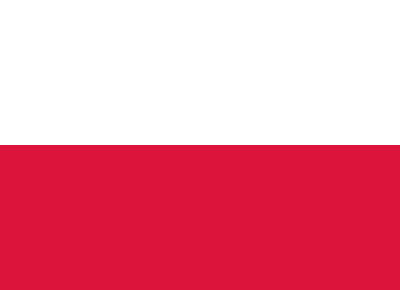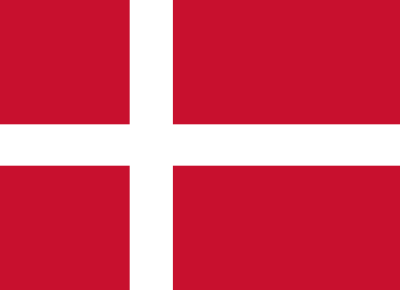How does reward affect payroll proficiency?
The same fixed salary. Every month, every year, for each employee. How nice would that be, right? But the reality is often very different as reward systems, including frequency of payment and flexible benefits, exist in many shapes and forms. Tools, processes and procedures all need to match your remuneration choices. Some have long found the magic formula, others are still searching. That’s why it’s one of the 6 drivers in our 2023 Payroll Proficiency Index.

Scores by country

Extra rewards come with extra work
By getting creative with rewards, you can optimise labour costs and personalise remuneration. This, in turn, opens the door to improved employee engagement. The downside: managing a multifaceted reward policy can impact your overall payroll proficiency, as we see in countries like France and Belgium. After all, every reward component comes with its own rules and obligations. Companies in these countries therefore often turn to payroll partners for help. They outsource the administrative and legal hassle, while keeping the advantages.
Hans Kroese, Managing Director Pointlogic at SD Worx
Reward: top 3 countries
Ranked from most proficient to least proficient
 Poland
Poland
Polish companies rely on a wide range of salary components to reward their employees. For instance, well over half the companies – above the European average – offer a fixed salary as well as premiums, bonuses and commissions. Also more common than in other countries: insurance packages, additional social security, technical equipment, extra time off, vouchers, loans and well-being benefits. Interestingly, a mere 13% of HR teams see this variety in salary components as an issue. Even more, Poland is the country that best handles ‘Rewards’ according to the 2023 Payroll Proficiency Index.
This implies that the bar is set high for international employers entering the Polish market for the first time. They have a lot to gain from the advice of HR partners with local expertise.
 Norway
Norway
Mandatory employee benefits in Norway are quite extensive, compared to other European countries. For example, employees are entitled to a minimum of 4 weeks and one day off annually. In addition, the general social security scheme offers great healthcare coverage. That said, many employers guarantee even more vacation days and offer private insurance and additional social security. But benefits in kind are not as common as in some other European countries. The Norwegian tax system is set up in a way that there is comparatively less to gain by favouring benefits in kind over wages.
Also good to know: the fact that there’s no general minimum salary, except in certain industries, is handled well. Employers and employees tend to align comfortably on this front.
 Spain
Spain
Our survey shows that only 5.5% of Spanish companies consider their reward system to have a negative impact on payroll proficiency. Nevertheless, foreign companies coming to the peninsula for the first time shouldn’t expect a walk in the park. The variety of employment contracts and their implications on remuneration can seem overwhelming, while loans and long-term incentives are also more common in Spain than in other European countries. In other words, payroll professionals must stay on top of their game to get remuneration right.
Also typical for Spain: the prevalence of extraordinary pay – or paga extra. The main issue here is that the calculation methods and designated pay dates heavily depend on the company agreement, adding to the complexity.
Reward: bottom 3 countries
Ranked from most proficient to least proficient
 Denmark
Denmark
In Denmark, many white-collar workers have individual contracts and, consequently, individual remuneration when it comes to base salary, bonuses, incentives, overtime payments, commissions, annual holiday, etc. Adding to the complexity: calculating bonuses, based on technical eligibility rules, can be tricky, because it’s normally done to shift positions into a new bonus plan as part of a career change during the year. And if an employee leaves the company, they must be paid a pro-ratio bonus for their time in the company.
Denmark is also the country in Europe that experiences the biggest negative impact with regard to the frequency of payments. Weekly or bi-weekly payments are common, which makes it difficult to solve errors correctly when they occur.
 Belgium
Belgium
Belgium is known for its high salary costs. That means employers have little bargaining space for extra cash. It also explains why Belgium is the world’s champion in employee benefits. Managing these benefits can drastically increase an HR team’s workload since every benefit comes with different rules. To illustrate, company cars don’t require social contributions, but you do pay solidarity contributions. And the owner of a company car gets taxed on the resulting benefit. The calculation of that benefit depends, among other things, on the CO2 emissions. Are you still following?
With inflation skyrocketing since 2021, the pressure on employers to get even more creative with employee benefits has only grown. More than ever, it’s the go-to option to offer employees a better salary package.
 France
France
As in most countries, bonuses and premiums are quite common, but the overly complex rules around them illustrate the sheer complexity of payroll in France perfectly. Depending on the nature of the sums paid, bonuses and premiums should or should not be taken into account to calculate the compensation for paid leave, sick leave, redundancy, etc. In combination with various other elements, this makes offering an extra to employees a grim prospect.
As is the case for Belgium, French companies heavily rely on payroll partners to figure out all the rules on remuneration in the Labour Code and collective bargaining agreements.